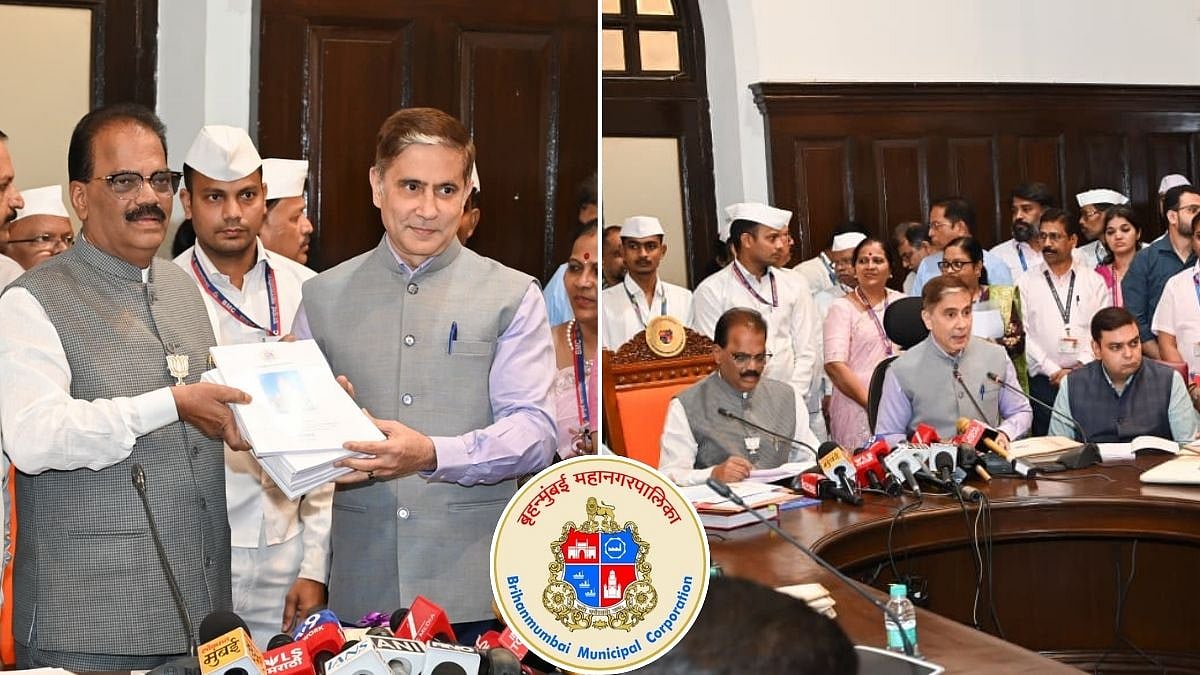Nitish Kumar’s move to cross over to the NDA to become CM for a record 9th term promises to be historic in many ways. Let me first demystify the phenomenon of politics of coalition or so-called politics of defection. Democratic politicians and voters all over the world are known for pursuing self-interest, opportunism or what thinker Alexis de Tocqueville called "enlightened self-interest" to serve the public goals. In short, changing the partners in life, love and politics is neither a moral stain nor a character flaw. Also, let me tell you that historians and biographers detect in enigmatic Nitish Kumar a strange streak of enjoying fratricidal war, something Lord Buddha had warned Patna denizens about in antiquity. His political adversaries and critics berate him for his alleged ‘opportunism’. Colleagues, mostly politicians, find his Nietzschean superior will a hindrance in the pursuits of quotidian politics. Cronies moo him for a Godly-bovine touch for redemption. Die-hard fans of Nitish consider him a strong leader, diligent and decisive without being dictatorial. His trusted team of bureaucrats finds him mythical ‘Wizard of Oz’ who has reinvented Bihar almost overnight. Nitish Kumar is neither charismatic nor wildly popular. He is also not Jan Nayak Karpoori Thakur yet he has radicalised his original agenda of social revolution beyond recognition via caste survey and extending reservation from 50% to 65% in Bihar. Nitish Kumar’s political journey from a son of school teacher in Kalyanbigha in the district of Nalanda to demi-God status of “Vikas Purush” is alluring, irresistible and almost surreal! Thus, don’t be surprised by Nitish Kumar’s shape-shifting noir of politics. Also, for the average Bihari, it is not a breaking news because both Nitish Kumar and Lalu Yadav are Siamese twins born out of vernacular, subalternised forms of socialism. Both are also a prominent product of the JP Movement of 1974-75 and iconic leaders of Mandal insurgency in North India. Further, decoding Nitish Kumar, a ‘hesitant rebel’, ‘an opportunistic hermit’, a rare socialist, and ‘focused vagabond’ who ‘set his eyes on power early, so early he himself had no cause to believe’ requires unpacking the enigmatic identity of what I call the ‘many and miscellaneous’ Biharis. The often loud, diligent Bihari, one-who-tells-it-like-it-is-with-no-sugar-coating cliché is not a singular persona.
Make no mistake that Nitish Kumar is not only a Kurmi, an OBC caste with just around 3% presence in the state, but he has become a fulcrum of powerful coalition of EBC extending the arc of a more inclusive ‘second republic’ in India. Though most political analysts and journalists continue to look at Bihar as a ‘republic of caste’, but if Bihar has become more developmental, entrepreneurial, and aspirational it is because of Nitish Kumar, the “Sushasan babu”. If the Laloo-Rabri raj gave Bihar new myths to celebrate deprivation and opulence, Nitish Kumar has led Biharis to discover ‘new passions and pleasures’ in vernacular modernism, functioning developmental state and aspirational India.
If you are still offended by Nitish Kumar’s opportunistic politics, I give a counterfactual experiences of savouring Bidesia songs. Trust me , if you are travelling by bus in Bihar, you are bound to get offended by the double entendre of Bhojpuri songs. No doubt, Bhikhari Thakur—known as the Shakespeare of poor migrants—would not have approved the raunchy Bhojpuri songs as the new aphrodisiac for poor migrants and desi Biharis. But the unvarnished satire, uncouth jokes and slangs in colloquial Bihari constantly challenge the sensibilities of modern, urban neo-middle class Homo sapiens in contemporary India. Only Nitish knows better than anyone else that he is his own making. In this Derridian territory of bottomless unknowing lies the secret of his success and his turbulent relationship with his political siblings in Bihar and beyond. A large part of his enigmatic persona is formed by what Freud called "unconscious memory" of a fratricidal warfare among his friends since college days; even when his is overwhelmed with crowning glory of his success, he harbours threats to his numero-uno position. This is something the Congress party has ignored in a typical case of ‘self-harm’ in politics. In the retinue of his daily success, he longs rather quietly for more success. Therefore, I am not surprised how he refused political retirement or Vānaprastha in the aftermath of Bihar elections of 2020.
To conclude, Nitish is an unusually usual democratic politician and quitenessential Bihari. Are you still surprised by this unheroic act of Nitish Kumar? If so then listen to this song from Gangs of Wasseypur: Jiye tu Bihar ke lala, jiye tu hazar sala. O, son/ daughter of Bihar, may you live for a thousand years!
Ashwani Kumar is a political scientist and professor at the Tata Institute of Social Sciences, and author of ‘Community Warriors; State, Peasants and Caste Armies in Bihar’. He is currently working on a biography of contemporary Bihar




